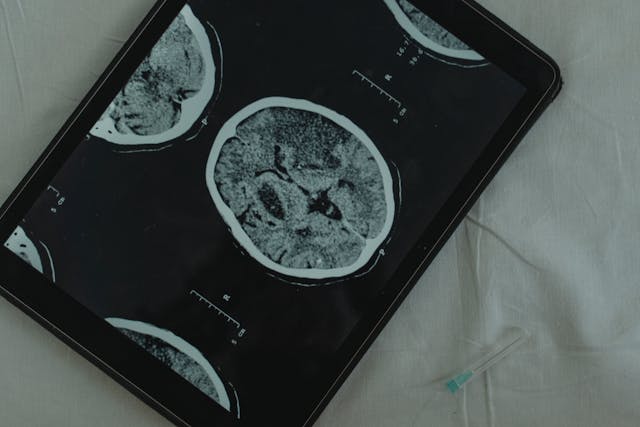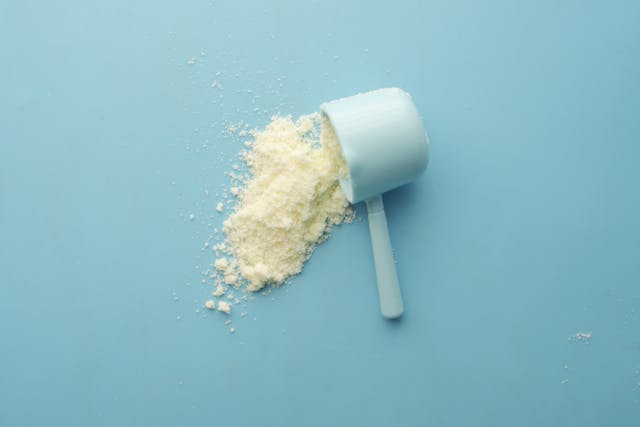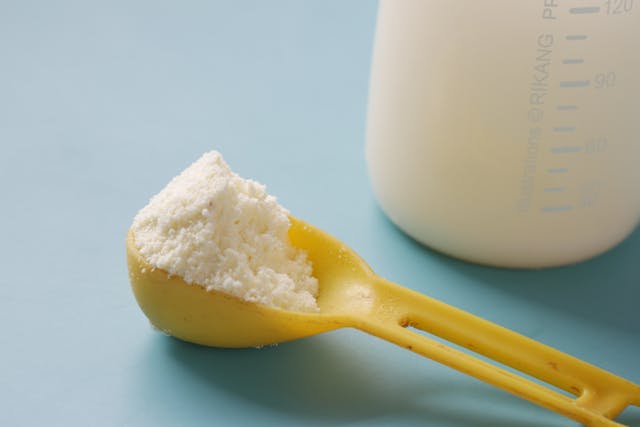You may have seen creatine on the shelves of your local pharmacy, typically found in the sports nutrition and supplementation aisle. You might even be aware that it is thought to increase the amount of energy that your muscle cells produce during a workout. However, did you know that it is also considered one of the most promising supplements for brain health? There have even been studies on the benefits of the consumption of creatine for sleep deprivation. One new study in particular found that a high dose of creatine can boost cognitive function in participants who had been deprived of sleep. Learn more about the potential creatine brain benefits in the article below.
Using Creatine for Sleep Deprivation
People regularly miss out on proper sleep. This could be for a number of reasons, including late work shifts or a series marathon session. While we may not think about it too much in the moment, chances are we wake up the next day feeling all foggy and tired. It can be really hard to focus at work in this state of mind, and people often turn to quick fixes such as energy drinks to wake them up. However, this can often leave you feeling jittery and fidgety. Unsurprisingly, many people would like to know how to improve focus when tired in a more sustainable way. Obviously, the best solution is to get proper sleep, but sometimes, the factors leading to sleep deprivation are out of our control. A new study, though, found that one large dose of creating significantly improved the cognitive function of people who were heavily sleep-deprived.
Creatine Brain Benefits

Based on these encouraging findings, researchers hope that creatine interventions can help people who need to function at an optimum level despite a lack of sleep. This includes individuals who work in the healthcare industry, night-shift workers, and firefighters. More studies need to be conducted before these results can be confirmed, though. What exactly is creatine, though? The human liver, kidneys, and pancreas produce around 1 gram of creatine every day, which is made from three amino acids. It can also be found in food (mostly meat and fish), and around 1 gram per day is consumed through an omnivorous diet. Approximately 95% of the creatine present in the body is stored in skeletal muscle. However, some of it is also present in the brain.
Creatine Cognitive Function

Sports people take creatine because it is known to help in the regeneration of ATP (adenosine triphosphate), the primary energy source of our cells. According to Scott Forbes, PHD, “Creatine gets converted into a molecule called phosphocreatine, and this molecule can be broken down rapidly into energy. The best part of this energy system is that it does not require oxygen. Therefore, if your brain requires energy quickly, it can use creatine (or phosphocreatine).” Growing evidence also supports the claims that creatine can potentially reduce oxidative stress and inflammation, which is beneficial to our brains. Additionally, it can also potentially reduce anxiety and depression risk and help support brain development and health.
The Study on Creatine and Sleep Deprivation

For the most recent study, the researchers recruited 15 participants. Every participant was required to spend two nights at the laboratory, with a space of at least 5 days between each visit. On one of the evenings, they were administered a high dose of creatine, and on the other, they were given a placebo. Previous studies have indicated that our brains only take up creatine when they are stressed. According to Forbes, “We have conducted systematic reviews and original investigations on creatine and cognitive performance in young healthy adults in non-stressful situations and found little to no benefit.” However, since sleep deprivation stresses the brain out, the researchers kept the participants awake and then subsequently asked them to perform various cognitive tasks.
Read More: Creatinine Levels: When to Worry About High and Low Creatinine
The Results of The Study

The cognitive tests were conducted at the beginning of the study, as well as on three different occasions throughout the night. According to their results, just three hours after receiving their dose, positive changes in cognitive changes were observed. These effects peaked at around four hours but lasted up to around nine hours. According to Forbes, “Researchers have speculated that a higher dose of creatine for a longer period of time is required to elevate brain creatine levels.” Therefore, he was rather impressed that merely a single dose resulted in a measurable increase in brain function.
Read More: Just Three Nights of Poor Sleep Can Cause Heart Problems, Study
More Research Required

Considering how many people could benefit from some sort of recovery from sleep deprivation, there are welcome results. As Forbes puts it, “More research is needed, but these findings could be highly applicable to first responders – firefighters, military, police – healthcare workers, pilots, or athletes who may have trouble sleeping yet need to have their brains functioning at a high level.” Furthermore, there are also certain safety concerns to be considered. For example, the amount of creatine used in the study was considerably high. This amount (more than 20 grams) is not recommended for everyone since it causes strain on the kidneys for those with pre-existing kidney issues.
Read More: 7 Supplements that Improve Brain Function
The Future of Creatine Supplementation

The researchers hope to find ways to enhance the creatine’s effects so that a lower dose will be required to achieve the same result. They believe that similar or even better results could be achieved if the creatine is mixed with other components. This is what they now hope to discover in future studies. However, it’s important not to go out and self-medicate without first speaking to a health practitioner. This will help ensure that you receive proper guidance on whether it is suitable for you and what dosages you should take.
The Bottom Line

While nothing can replace a good night’s sleep, new research suggests that creatine may help alleviate the effects of sleep deprivation. A single high dose improved brain function by up to 25% in sleep-deprived participants. These results could be useful for night shift workers, emergency responders, and anyone who has to stay alert despite a lack of sleep. However, more research is required to confirm these effects and identify safer, lower levels. Until then, consult a doctor before incorporating high-dose creatine into your program, and prioritize sufficient rest whenever possible.
Disclaimer: This information is not intended to be a substitute for professional medical advice, diagnosis or treatment and is for information only. Always seek the advice of your physician or another qualified health provider with any questions about your medical condition and/or current medication. Do not disregard professional medical advice or delay seeking advice or treatment because of something you have read here.
Read More: Creatine Supplementation Investigated in New Alzheimer’s Research Study
